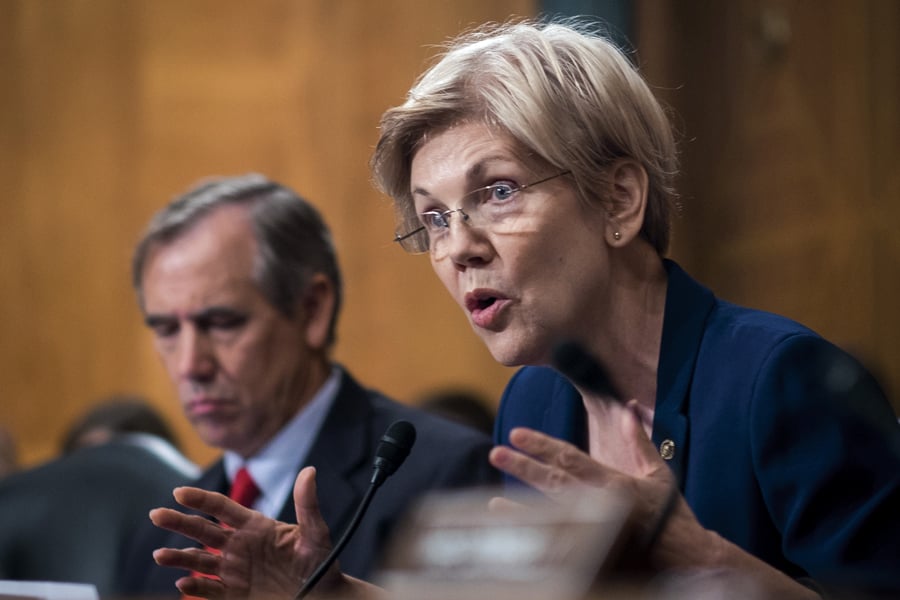

Sen. Elizabeth Warren is asking Robinhood Markets Inc. to explain its decision to restrict trading in shares of GameStop Inc. and other companies amid a frenzy that pushed shares of the video-game retailer to extraordinary levels.
In a letter dated Tuesday, the Massachusetts Democrat asked Robinhood Chief Executive Vladimir Tenev to disclose whether the restrictions might have been influenced by talks with hedge fund investors or financial services partners, including Citadel Securities.
She also sought assurances that Robinhood is meeting regulatory requirements and contractual obligations to retail customers.
”In addition to putting customers’ finances at risk, Robinhood’s actions revealed a new set of questions about its relationship with large hedge funds and other financial institutions, and follows past criticisms of Robinhood’s insufficient investor protections,” Warren wrote. She asked that the company respond by next Tuesday.
Warren and some other lawmakers have joined retail investors behind the surge in GameStop shares in questioning whether Robinhood imposed the trading curbs in coordination with Citadel Securities, the market maker that is one of the trading platform’s biggest sources of revenue.
Both Robinhood and Citadel have flatly denied any coordination or wrongdoing.

Carson is expanding one of its relationships in Florida while Lido Advisors adds an $870 million practice in Silicon Valley.

The approval of the pay proposal, which handsomely compensates its CEO and president, bolsters claims that big payouts are a must in the war to retain leadership.

Integrated Partners is adding a husband-wife tandem to its network in Missouri as Kestra onboards a father-son advisor duo from UBS.

Futures indicate stocks will build on Tuesday's rally.

Cost of living still tops concerns about negative impacts on personal finances
RIAs face rising regulatory pressure in 2025. Forward-looking firms are responding with embedded technology, not more paperwork.
As inheritances are set to reshape client portfolios and next-gen heirs demand digital-first experiences, firms are retooling their wealth tech stacks and succession models in real time.
